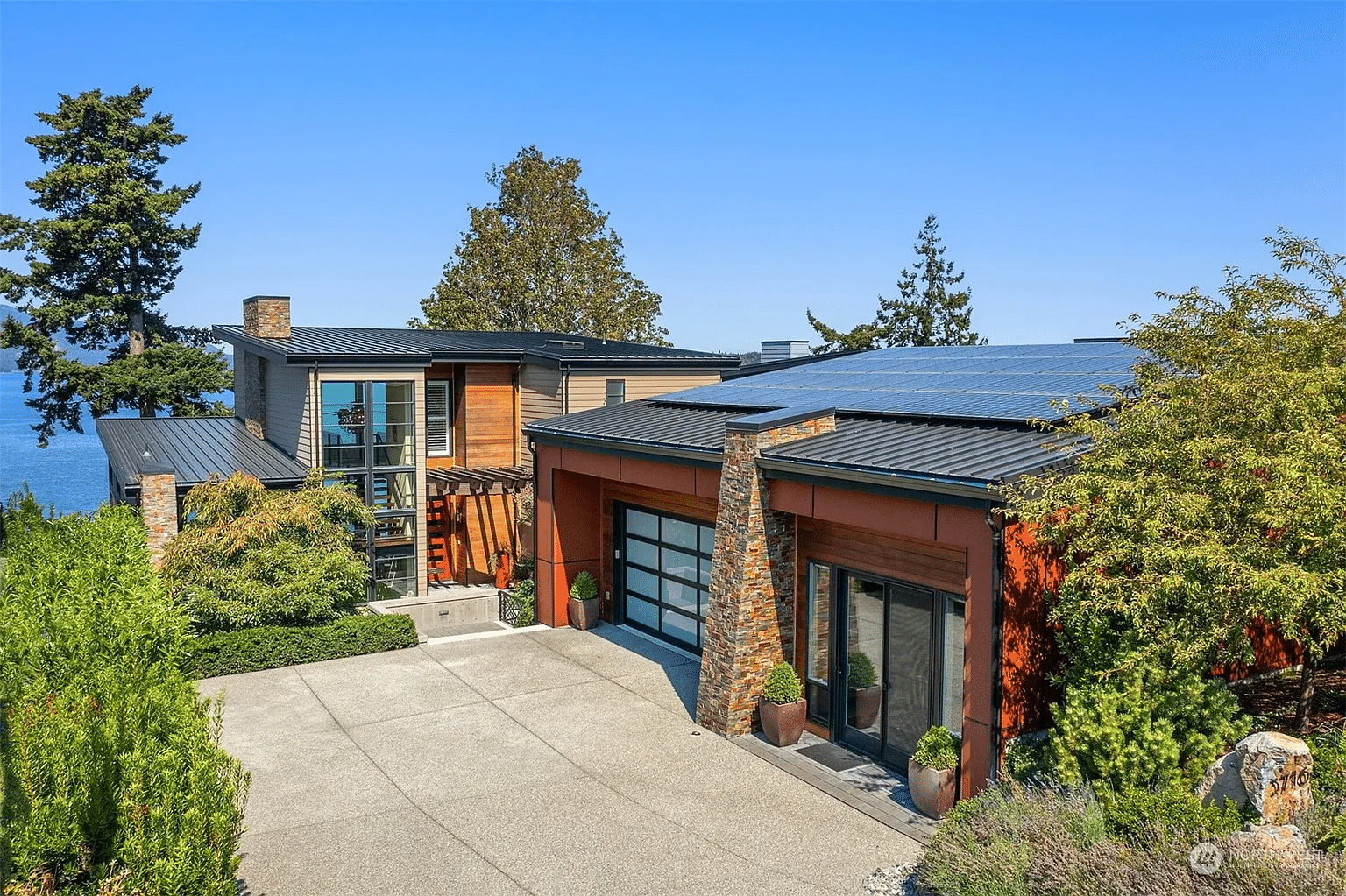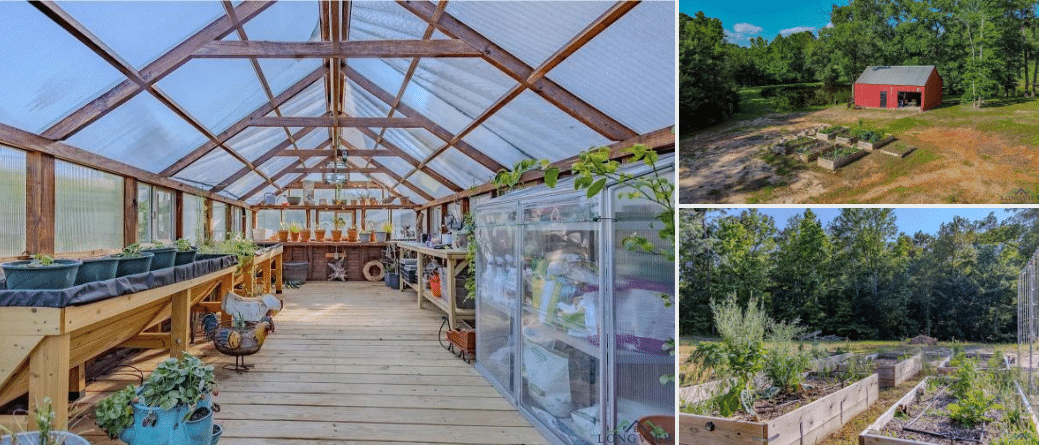Living Off the Grid: Is an Off-Grid or Prepper Home Right for You?
If you’re reading this, chances are you’ve heard about living “off the grid” and are wondering whether it might be the right move for you.
Whether it’s because you’re drawn to the idea of independence, a simpler lifestyle, or you just want to be prepared for anything, going off-grid has a lot of appeal these days. But, as with any big decision, there’s a lot to think about before making the leap. So, let’s dive into what living off the grid really means, the pros and cons, and some things you should consider before deciding if this lifestyle is right for you.
What Does It Mean to Live Off the Grid?
First things first, what does “off the grid” actually mean? In simple terms, living off the grid means not being connected to public utilities like electricity, water, and sewage systems. Instead, you generate your own power, manage your own water supply, and deal with waste in a sustainable way.
Off-grid living can range from basic setups, like a small cabin with solar panels and a rainwater collection system, to more elaborate homes with advanced technology for energy and water management. Some people live off-grid full-time, while others use it as a way to escape the hustle and bustle on weekends or holidays.
Why Go Off the Grid?
The idea of living off the grid is often associated with the “prepper” lifestyle—a mindset of being ready for emergencies, whether they be natural disasters, economic collapse, or other unforeseen events. But it’s not just for those who are preparing for the end of the world. Many people are drawn to off-grid living for a variety of reasons, including:
- Self-Sufficiency: There’s something incredibly satisfying about producing your own power, growing your own food, and knowing you can take care of yourself without relying on outside systems.
- Environmental Impact: Living off the grid often goes hand in hand with reducing your carbon footprint. By generating renewable energy, conserving water, and producing less waste, you’re doing your part to help the planet.
- Financial Savings: While there’s an initial investment in setting up an off-grid home, over time, you can save money by not having monthly utility bills.
- Peace and Privacy: Off-grid homes are often located in remote areas, giving you a chance to escape the noise and stress of urban life and enjoy the quiet of nature.
The Pros of Off-Grid Living
So, what are the actual benefits of living off the grid? Here are some of the major pros:
- Independence: One of the biggest draws is the sense of independence. You’re not at the mercy of power outages, water shortages, or fluctuating utility prices. You control your resources.
- Sustainability: Off-grid living encourages a sustainable lifestyle. You’ll likely be more conscious of how much energy and water you use, which leads to less waste and a smaller environmental footprint.
- Resilience: Being off-grid means you’re prepared for various emergencies. Whether it’s a storm that knocks out power in the city or an unexpected event that disrupts supply chains, you’re in a better position to weather the storm, literally and figuratively.
- Cost Savings: After the initial setup, your costs can be significantly lower. You won’t have regular utility bills, and many off-gridders find that they spend less overall because they become more self-reliant and resourceful.
- Connection to Nature: Living off-grid usually means living closer to nature. Whether it’s the mountains, the forest, or the countryside, you can enjoy its beauty and serenity.
The Cons of Off-Grid Living
Of course, it’s not all sunshine and roses. There are some challenges and downsides to living off the grid that you should be aware of:
- Initial Costs: Setting up an off-grid home can be expensive. Solar panels, batteries, water systems, and waste management solutions all require upfront investment. Depending on your setup, it can take years to recoup these costs.
- Maintenance: Without public utilities, all maintenance is on you. That means you must know how to fix your solar panels, maintain your water system, and manage your waste. If you’re not handy, this can be a steep learning curve.
- Isolation: While the privacy is great, living off-grid can also be isolating. If you enjoy social activities and being close to amenities like shops and restaurants, you might find it lonely or inconvenient.
- Limited Power Supply: Depending on your energy setup, you might have to be very mindful of your power usage, especially in winter when there’s less sunlight. This might mean making sacrifices, like using less heating or limiting your use of electronics.
- Legal and Zoning Issues: Some areas have strict regulations on off-grid living. You might face legal challenges or difficulties getting permits for your setup. It’s important to do your homework and understand the rules in your area before making any decisions.
Is Off-Grid Living Right for You?
Deciding to live off the grid is a big decision that requires careful consideration. Here are some questions to ask yourself:
- Are you ready for the challenges? Off-grid living can be tough, especially at first. Are you prepared to handle the physical work and problem-solving that comes with it?
- Do you have the skills (or are you willing to learn)? Living off the grid requires a lot of know-how. Are you handy with tools or willing to learn about things like solar power, plumbing, and gardening?
- How important is community to you? If you thrive on social interaction, the isolation of off-grid living might be challenging. Consider how you’ll stay connected with friends and family.
- What are your motivations? Understanding why you want to go off the grid can help you stay committed when things get tough. Whether it’s for financial freedom, environmental reasons, or a desire for independence, knowing your “why” is important.
Getting Started with Off-Grid Living
If you’ve decided that off-grid living is right for you, here are some steps to get started:
- Research and Plan: Learn as much as you can about off-grid living. Read books, watch videos, and talk to people who are already living this lifestyle. Plan out your setup carefully, considering your power, water, and waste management needs.
- Start Small: You don’t have to go completely off-grid all at once. You can start by incorporating some off-grid elements into your current home, like installing solar panels or starting a garden. This will give you a taste of the lifestyle without the full commitment.
- Choose the Right Location: Location is key. You’ll want to find a place with good solar exposure, access to water, and a climate that suits your needs. Also, consider the legal aspects and ensure that off-grid living is allowed in your chosen area.
- Build a Support System: Even if you’re living off-grid, it’s important to have a support system. This could be neighbors who also live off the grid, online communities, or local experts who can help you troubleshoot any issues.
- Be Prepared for a Transition Period: Moving off the grid is a big change, and it will take some time to adjust. Be patient with yourself and be ready to make mistakes. The rewards of living off the grid are worth it, but it’s a journey that requires time and effort.
Conclusion: Is Off-Grid Living Really for You?
Living off the grid isn’t for everyone, but for those who are drawn to the idea of self-sufficiency, sustainability, and independence, it can be an incredibly rewarding lifestyle. It’s a chance to live closer to nature, reduce your environmental impact, and prepare yourself for whatever the future might hold. But it’s also a lifestyle that requires commitment, hard work, and a willingness to learn and adapt.
So, is off-grid living right for you? Only you can answer that question. But if you’re ready to take control of your life, reduce your reliance on outside systems, and embrace a more self-sufficient way of living, then off-grid living might just be the perfect fit.



